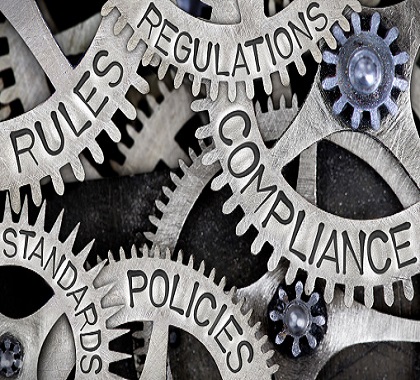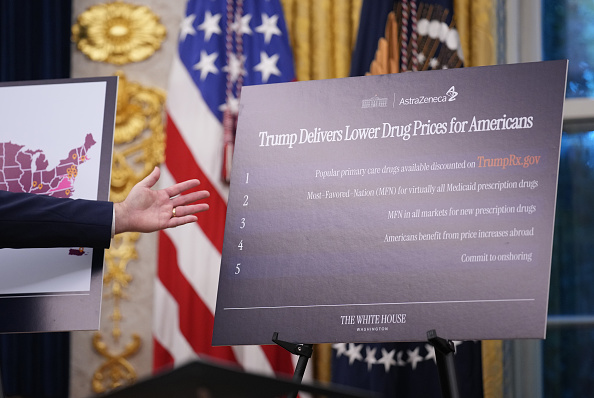Re: Advanced Notice of Proposed Rulemaking
Reassignment of Medicaid Provider Claims
83 Fed. Reg. 32252, RIN 0938-AT61
CMS-2413-P (July 12, 2018)
The Heartland Institute is submitting the following comments in response to the Centers for Medicare and Medicaid Services’ (CMS) Advanced Notice of Proposed Rulemaking (ANPR),[i] titled “Medicaid Program; Reassignment of Medicaid Provider Claims.”
If Medicaid is to continue to provide care to vulnerable and low-income families, it is important to ensure all Medicaid funds are spent efficiently. Unfortunately, in several states, millions of taxpayer dollars are being redirected from providing health care services to caregivers who really need them straight into the pockets of public-sector unions.[ii] This is a highly immoral practice that should be stopped immediately. Thus, we agree with CMS’ choice to remove the regulatory text at 42 CFR 447.10(g)(4), which allows a state to reassign portions of a provider’s payment to third parties for benefits such as health insurance, skills training, etc.
Dues Skimmed from Ailing Medicaid Programs
Medicaid is placing an increasing financial strain on state budgets, especially states that chose to expand under the Affordable Care Act (ACA). Across the country, taxpayers spend more than $565 billion annually on Medicaid.[iii] The primary goal of Medicaid is a noble one: to provide health care for the disabled and vulnerable and to support low-income families by helping them afford health care.
According to the Mercatus Center, the average cost of a Medicaid expansion enrollee was nearly 50 percent higher in fiscal year 2015 than the levels the Department of Health and Human Services had previously projected.[iv] Like many welfare programs, Medicaid has suffered from fraud and abuse, and the program’s expansion under the ACA to include many able-bodied adults is putting Medicaid on even thinner ice.
Each year, about $41.5 billion of Medicaid funds are sent to states through the Home and Community-Based Services waiver program.[v] Under this program, individuals receiving Medicaid funds who are suffering from a disability, illness, or other chronic affliction are able to use these funds to pay for in-home care instead of enrolling at a long-term care facility. Often, family members, friends, or local in-home providers supply these in-home services. The funds are sent directly to these providers on behalf of the patient.
The problem with these services began when unions in several states pushed to reclassify in-home providers as state workers, thereby subjecting them to union rules and dues. According to the Freedom Foundation, in 11 states (California, Connecticut, Illinois, Maryland, Massachusetts, Minnesota, Missouri, New Jersey, Oregon, Vermont, and Washington), unions like the Service Employees International Union (SEIU) have arranged for states to deduct agency fees, better known as union dues, out of the payments sent to providers and to remit them directly to public-sector unions.[vi]
According to the State Policy Network, this scheme costs Medicaid patients and their providers an estimated $200 million each year in the 11 states that permit this activity.[vii] States also allow unions to operate the same scheme with childcare providers who receive payments through the Child Care and Development Fund or the Temporary Assistance for Needy Families program. This adds up to an estimated $50 million annually in nine states (Connecticut, Illinois, Maryland, Massachusetts, New Jersey, New York, Oregon, Rhode Island, and Washington).
Altogether, more than $250 million is deducted annually from critical programs designed to help the country’s most vulnerable citizens because of dues skimming.
Medicaid Dues Skimming Is Not New and Likely Illegal
States have been skimming union dues from caregivers’ Medicaid payments for decades. Under the original federal Medicaid laws, the legality of these payments is unclear. Under 42 U.S. Code § 1396a(a)(32), the law requires that “no payment under the plan for any care or service provided to an individual shall be made to anyone other than such individual or the person or institution providing such care or service.”[viii] This means that under the original law, diverting funds to third parties, such as unions, should not be allowed.
However, this issue became more complicated in 2014, when the Obama administration adopted 42 CFR 447.10(g)(4), a new regulation authorizing the deduction of funds from caregivers’ pay for “benefits customary to employees.”[ix] This Obama-directed regulation violates the original law and allows states to funnel funds to third parties, such as unions. In essence, the regulation provides a legal loophole for states to exploit.
Removing this regulation would be the first step toward ensuring states no longer divert Medicaid funds to unions. Furthermore, in several states, caregivers have only a limited period to opt out of paying union dues. These time windows can be as short as 10 days in an entire calendar year.
Tim Hill, the current acting director for Medicaid and Children’s Health Insurance Program, argues the newly proposed rule is crucial to ensure Medicaid payments are used properly. “The law provides that Medicaid providers must be paid directly and cannot have part of their payments diverted to third parties outside of a very few specific exceptions. This proposed rule is intended to ensure that providers receive their complete payment, and any circumstances in which a state does divert part of a provider’s must be clearly allowed under the law,” Hill told the Washington Examiner.[x]
It is important to remember 42 U.S. Code § 1396a(a)(32) applies to all assignments of Medicaid payments, even those that are made voluntarily. Even if a provider wishes to be a union member, this should not be subsidized by the state. Instead, the provider should directly receive the funds and pay the dues, without state interference. Medicaid funds are designated for health care providers’ services. These funds should not be diverted for non-health care services; the proposed regulations need to make this distinction clear.
Skimming Medicaid Funds for Political Purposes
At the center of the dues-skimming debate is how public unions use the funds. In the 2014 case Harris v. Quinn, the U.S. Supreme Court confirmed that diverting Medicaid funds, which unions use for political purposes, is illegal.[xi] Despite this ruling, dues skimming continues in several states. This underlies the key problem with dues skimming: It is fiscally irresponsible and morally questionable to divert funds to union coffers that are supposed to provide health care for low-income and disabled Americans.
There are several ways unions have used 42 CFR 447.10(g)(4) as a recruiting tool in several states. For instance, after the Harris decision, a new California law required home care aides to receive a 30-minute union membership pitch. An examination of union spending by Sam Han and Will Swaim found that SEIU 2015, one of the two unions representing Medicaid caregivers in California, spent nearly 60 percent of the funds it collected in dues on political work and other activity unrelated to representing caregivers.[xii]
The recent decision in Janus should make opting in to union membership the standard for new employees. However, public unions in several states have already begun to push for new laws, either strengthening unions or making it more difficult for state workers to opt out without penalties.[xiii]
Under current New York law, government workers who choose to join a union would be allowed to withdraw from a union dues deduction “at any time” simply by notifying their employer. However, a new bill would end this practice and allow workers to withdraw their dues “in accordance with the terms of the signed authorization.”[xiv] The Empire Center warns New York workers could be forced to commit to a particular union and support that union financially for up to 11 months if the bill becomes law.[xv]
Another example of a state limiting worker choice in response to Janus is Washington State, where a new law was signed in March that mandates state collection of dues for public-sector unions.[xvi] Another bill intended to keep the status quo would prohibit public employers from informing workers of their right to not pay a union.[xvii]
Not all states have taken steps to make it more difficult for workers opt out of union dues. For example, Missouri has made it easier for public and private workers to opt out of union membership. A new law requires unionized government employees to vote every three years on union representation.[xviii] The law also requires all state workers to decide each year if they want union dues to be deducted from their earnings, allowing them “paycheck protection.”
CMS Should Clarify Medicaid Funds Cannot Be Sent to Unions
Even before 2014 and the creation of the 447.10(g)(4) regulatory exemption, states allowed dues skimming. This seems to indicate many state governments are either not aware of the law’s restrictions or that they have chosen to ignore them. In its final rule, CMS should make it clear that it is illegal to divert Medicaid funds to unions.
In addition to the moral and fiscal hazards related to dues skimming, this political ploy violates worker freedom. Forced membership infringes on workers’ right to associate. Like all workers, home care providers should be able to choose whether or not they will join a union.
For these reasons, The Heartland Institute respectfully submits this comment stating that 42 CFR 447.10(g)(4) should be repealed.
[i] “Medicaid Program; Reassignment of Medicaid Provider Claims,” Federal Register, July 17, 2018, https://www.federalregister.gov/documents/2018/07/12/2018-14786/medicaid-program-reassignment-of-medicaid-provider-claims.
[ii] “Dues Skimming FAQs,” State Policy Network, https://spn.org/dues-skimming-faqs/.
[iii] “NHE Fact Sheet,” Centers for Medicare and Medicaid Services, https://www.cms.gov/research-statistics-data-and-systems/statistics-trends-and-reports/nationalhealthexpenddata/nhe-fact-sheet.html.
[iv] Charles Blahous, “The Affordable Care Act’s Optional Medicaid Expansion: Considerations Facing State Governments,” Research Paper/Study, Mercatus Center, March 5, 2013, https://www.mercatus.org/publication/affordable-care-acts-optional-medicaid-expansion-considerations-facing-state-governments.
[v] Thomas Aiello, “Congress Must End Union Dues Skimming of Family Caregivers’ Paychecks,” National Tax Payers Union blog, February 8, 2018, https://www.ntu.org/publications/detail/congress-must-end-union-dues-skimming-of-family-caregivers-paychecks.
[vi] Maxford Nelsen, “Getting Organized at Home: Why Allowing States to Siphon Medicaid Funds to Unions Harms Caregivers and Compromises Program Integirty,” Freedom Foundation, July 2018, https://www.freedomfoundation.com/wp-content/uploads/2018/07/Getting-Organized-at-Home.pdf.
[vii] “End Dues Skimming, Protect Home Healthcare Providers,” State Policy Network, https://spn.org/landing_page/protect-providers/.
[viii] “42. U.S.C. 1369A – State Plans for Medical Assistance,” United States Code, 2006, https://www.gpo.gov/fdsys/granule/USCODE-2010-title42/USCODE-2010-title42-chap7-subchapXIX-sec1396a.
[ix] “42 CFR 447.10 – Prohibition Against Reassignment of Provider Claims,” Code of Federal Regulations, https://www.gpo.gov/fdsys/granule/CFR-2007-title42-vol4/CFR-2007-title42-vol4-sec447-10/content-detail.html.
[x] Sean Higgins, “Trump administration moves to end union dues skimming of homecare workers,” Washington Examiner, July 10, 2018, https://www.washingtonexaminer.com/policy/economy/trump-administration-moves-to-end-union-dues-skimming-of-homecare-workers.
[xi] Harris et al. v. Quinn, Governor of Illinois, et al., opinion, Supreme Court of the United States, October, 2013, https://www.supremecourt.gov/opinions/13pdf/11-681_j426.pdf.
[xii] Sam Han and Will Swaim, “How California skims federal Medicaid payments to fund a powerful union,” The Orange County Register, October 30, 2017, https://www.ocregister.com/2017/10/30/how-california-skims-federal-medicaid-payments-to-fund-a-powerful-union/.
[xiii] Janus v. American Federation of State, County, and Municipal Employees, Council 31, Oyez.org, June 27, 2018, https://www.oyez.org/cases/2017/16-1466.
[xiv] New York Senate Bill S5778, https://www.nysenate.gov/legislation/bills/2017/s5778/amendment/original.
[xv] Ken Girardin, “The Janus Stakes,” Empire Center, January 9, 2018, https://www.empirecenter.org/publications/the-janus-stakes/.
[xvi] Washington State HB 2751, http://apps2.leg.wa.gov/billsummary?BillNumber=2751&Year=2017&BillNumber=2751&Year=2017.
[xvii] Washington State SB 6082, http://apps2.leg.wa.gov/billsummary?BillNumber=6082&Year=2017&BillNumber=6082&Year=2017.
[xviii] Missouri HB 1413, https://house.mo.gov/billtracking/bills181/sumpdf/HB1413T.pdf.




